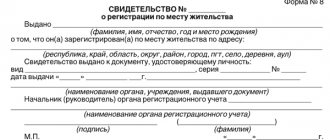How pension savings are formed in Poland
Pensions in Poland are formed from the same 19.5% of monthly deductions from salaries. They are divided like this:
- 12% goes to the state social insurance system (this level is called distribution level),
- 7.5% of the funds go to the accounts of OPF (open pension funds). This element of the system is cumulative.
The levels shown are mandatory. There is another one - individual. This includes personal savings and deposits of Polish citizens in their old age into the accounts of various insurance commercial organizations.
As a result, with a minimum of advertising and practically no propaganda, by 2000, 85% of the entire working population who had the right to choose OPF joined the new system, which gave elderly Poles some guarantee of a comfortable old age.
The insurance company collects all data
All data and insurance premiums are collected, processed and transmitted to the responsible authorities. Businesses and employers who contribute monthly to the total amount of social security contributions must calculate the contributions for employees and themselves. Employers pay 45 percent of their gross wages toward Social Security.
Social insurance covers pension insurance, disability insurance and accident insurance. Half of the pension insurance contributions are paid by the employer and the employee, while the accident insurance and unemployment fund contributions are paid only by the employer.
Minimum and average pension in Poland
In general, Polish pensioners do not complain about payments. Today, the minimum pension provision is set at 1000 zlotys. At the September 2021 exchange rate in rubles, the minimum Polish pension is about 16 thousand rubles.
But such security must be earned through experience: 15 years or more for women, 20 years or more for Polish men. If the length of service is insufficient, then pensioners receive only social benefits, which are much lower than the minimum payment.
The highest pension in the country is 2.5 thousand zlotys (approximately 40 thousand rubles), only 5% of all pensioners receive it. The average payment (and 50% of Poles receive such a pension) is 1200-1500 zlotys, that is, 19.5-24 thousand rubles.
But pensioners have the opportunity to receive additional payments to their pension. It's not all that simple though. Such payments are assigned:
- when a Pole reaches the age of 75 (he must be completely disabled);
- veterans (war, labor);
- citizens with secret (state) knowledge;
- orphans who have lost both parents;
- former military men who worked in the mines;
- deported prisoners in the camps of the Second Reich.
Polish pensioners also have the right to receive additional income by getting a job. In this country, official employment does not affect the size of pension benefits.
Life of pensioners in Poland - what you can count on and what you need to know
The life of pensioners in Poland is often seen by residents of the CIS as a kind of idyll.
After all, it is believed that it is in this country that older citizens receive a high level of social benefits, enjoy various benefits, discounts, and can also travel throughout Schengen without applying for visas.
They do not need to worry about finding a job, although they can have a job without losing their pension. Is this really so, we will try to understand this material.
In Poland, in recent years, a new retirement age has been established - 67 years. Residents younger than him can count on receiving a disability or long-service pension, but there are not so many of those who have this right in the country, so the majority strives to work until the last day in order to receive the maximum amount of budget payments.
In terms of the level of provision of funds, Polish pensioners are somewhat behind residents of other Schengen countries. Their pension turns out to be significantly lower, which is why many cannot afford to travel around the world, visit various resorts and other delights, unless, of course, they have found additional work. The layer of wealthy pensioners characteristic of Western countries is not here.
The average pension in this country is 1800 zlotys. This amount is actually quite sufficient for a comfortable life for pensioners, even in such large centers as Warsaw or Krakow. In addition to this amount, they also receive discounts on train travel, and in public transport they generally travel for free.
Those persons who are assigned a pension below the average are provided with benefits. These benefits allow them to save on medical care, purchasing necessary medications, and paying utility bills. Often the state provides them with targeted subsidies.
That is why many older people prefer to find a job here, working at least a few hours a day, in order to provide a higher standard of living for themselves, as well as help their children or grandchildren.
As in other countries, the level of pensions in Poland depends on various factors, including the length of service of pensioners, their earnings, and the sector of employment.
So, in order to receive the minimum payments here, the applicant must prove that he has a work experience of at least 15 years (this is for women) - 20 (for men), which includes only legal work.
If he succeeds, the state may assign a minimum pension, the amount of which will be 800 zlotys. In the same case, if a person cannot confirm this fact, he will be awarded a smaller pension depending on his official length of service.
If a person has a long social history and even has special services to society, he can count on a fairly high level of pension. It can be up to $800. However, no more than 5% of the population of this country can count on this level of income.
In Poland, pensioners are employed in various positions. As a rule, they are given work that does not require high qualifications: help in the garden, housework, child care.
Elderly people may also be involved in education (they are often left to teach in secondary and higher educational institutions) or medicine.
For military pensioners, vacancies as watchmen in private households are available, which are also very common in Poland.
Of course, for pensioners the work here is mostly easy. Even if they are hired to work seasonally on private farms, they are rarely trusted with the harvest itself. The most common job for them is caring for the house in the off-season, as well as living in summer cottages for the purpose of protecting them.
Since such people cannot perform most of the duties in various positions, in particular those that require working with a computer or physical labor, they are hired for various vacancies very reluctantly, accepting them much more often than ordinary applicants.
That is why pensioners often have to look for vacancies not on their own, but with the help of special agencies that can provide work for older people.
The simplest solution that allows Poles to quickly find a place for themselves while receiving a pension is to contact specialized agencies or government employment centers.
Here they are helped to find places that correspond to the person’s specialty before retirement, and also protect the rights of those who apply, since work is provided to them by various organizations reluctantly.
Both public and private offices work quite efficiently.
Also, Poles and migrants who have reached retirement age can independently look for vacancies for themselves. At their service are bulletin boards, as well as local newspapers, where it is easiest to find offers for good vacancies in the “job” sections, which can be handled by an older person. Here, perhaps, there may be the most suitable proposals.
Also, often pensioners in this country simply turn to their neighbors, who can provide housework for them. Of course, such work is not official, but for many people who do not have high qualifications, but have already lost their chances for good vacancies in various fields, this option is quite acceptable.
Pensioners, like any other applicants, can be provided with work legally under a contract. For such employees, contributions to the state pension fund are no longer made, but, if desired, the employee can deposit part of the funds into a private pension fund in order to further receive a kind of bonus to regular payments.
The work of a pensioner, at his request, can be partial or full - there are no restrictions in this regard since 2000.
They have equal rights with all other employees of the enterprise; in particular, they are obliged to treat them with respect and fulfill all obligations in relation to this employee.
However, as a standard, they do not hire pensioners for vacancies associated with dangerous work, do not allow them to work at heights, or engage in heavy physical labor.
Even if a person has extensive experience in this field and special access to such objects, he can only remain a consultant when performing various tasks associated with increased risk. Otherwise, his work is unlimited.
In addition to the fact that such citizens can get a job without losing pension payments, Polish pensioners have some other advantages. This way, they receive benefits for health improvement (mostly this means holidays in specialized sanatoriums that treat certain organs and systems); in various cities they can be given discounts on food products.
In addition, approximately once a year they can take advantage of a 37% discount on intercity travel.
If a pensioner needs care, he can contact social services for help. However, in order for it to be provided to him, it is necessary to prove that housework and care for a person cannot be provided by relatives. There are no other benefits in this country for pensioners.
In general, the life of pensioners here, although more stable than in most CIS countries, is not as attractive as that of pensioners in Western European countries like France or England.
Over the past 10-15 years, life in Poland has changed significantly. This is primarily due to its entry into the Schengen zone and investment in the economy by the European Union.
This served as a powerful impetus for the intensive development of various sectors of the national economy, the creation of new jobs, and also served as the basis for the introduction of international norms and standards.
In particular, the average salary in all regions in Poland has increased, although it is differentiated.
Warsaw
Despite the fact that regular increases in the minimum wage throughout the country entail an increase in prices for goods, products and services, including utilities, the standard of living is steadily improving. Last year, the minimum wage increased from 1,680 zlotys to 1,750.
As experts note, there is a clear tendency in the country for wages to depend on the industry and region (differentiation). For example, in the public sector the average salary in 2018 was about 400 zlotys more. But young specialists, as a rule, receive 40 percent less than their more experienced colleagues.
In the state, there are significant fluctuations in salaries depending on the region; in the richest, they can be 200-300% higher than in the poor. According to statistics, the largest increase in income (in the second half of 2015) was recorded in the industrial and construction industries.
The main expense item is food. About 30% of monthly income is spent on their purchase. However, it should be noted that compared to average European standards, food here is relatively cheap. Most items in supermarkets are slightly cheaper compared to the market.
An approximate table of food prices in Poland in zlotys is as follows:
- bread - 2.5;
- sugar (kg) - 2.5;
- eggs (1 dozen) - 5;
- chicken fillet (kg) - 15;
- cucumbers, tomatoes (kg) - 4;
- chocolate (pcs.) - 3;
State support for Polish pensioners
Elderly pension recipients whose provision is less than PLN 1,500 per month are provided with:
- Benefits for medical services in private paid clinics and hospitals, which greatly relieves the burden on the state medical structure.
- Payment from 50% of housing and communal services (or even 100%!)
- Free medicines after 75 years. Or preferential prices for them.
- Preferential travel. Or free travel on public transport (in some cities of the country).
- 2 times a year the opportunity to purchase a discounted ticket for railway transport and travel in any direction.
And also, if a pensioner needs guardianship over him, he can contact the social service. The only thing worth considering is that in this situation he will need to prove that there are no relatives who can take care of him.
Polish pension system
The basic principle of the Polish pension system is that the heavy burden of state social security should be redistributed between the budget and private pension funds.
This led to the fact that contributions for future pensioners began to be transferred in two directions:
- distribution part - 12.22% of salary - insurance payments to the State Social Insurance Fund (Zakład Ubezpieczeń Społecznych);
- the funded part – 7.3% of monthly earnings – funds transferred to open pension funds.
Not all Poles have the right to a funded pension. For this purpose, an age gradation of future pensioners has been introduced, according to which:
- those born before January 1, 1949 will receive a pension accrued in accordance with the joint insurance system that existed before the 1999-2000 reform;
- those born from January 1, 1949 to December 31, 1968 can choose the method preferred for each individual pensioner;
- those born after January 1, 1969 will already receive the pension that the new pension system guaranteed them.
The essence of the 1999 reform is to reorganize the social insurance institution and force citizens to invest part of their funds in open pension funds, thus forming the funded part of their future pension.
At the same time, it was planned that private insurance funds would invest the contributions received in domestic assets or securities, activating the Polish economy.
Everything about the system of taxation and social contributions in Poland is in the article “Taxation of personal income in Poland.”
Retirement age and length of service
The previous Polish government, following pan-European trends, agreed with the need to increase the retirement age to 67 years. It was planned to reach this level for women and men by 2040.
But with the advent of the new coalition, the approach to the issue has changed.
The election promises of the new Polish leaders were embodied in a law in which the retirement age in Poland for women and men was reduced by almost 7 years: to 60 years for women and to 65 years for representatives of the stronger half of humanity.
Having lowered the age for retirement in old age, the minimum length of service required to receive an insurance pension was left at the same level. To do this, a man needs to work for 25 years, and a woman for 20 years, and must pay contributions.
Amounts of insurance pensions in Poland
The minimum insurance pension in Poland is 853 zlotys (equivalent to just over 200 euros) per month (net), but in practice such a low level of pension benefit is established for only 4-5% of elderly Poles, as well as for foreigners who were able to confirm their insurance length of service sufficient to calculate a pension in Poland.
Other citizens receive a little more: the average payment per month ranges from 1500-2000 zlotys.
Payments to disabled people and military personnel
The amount of disability payments depends on the nature of the health damage. Those who have partially lost their ability to work are given a very small benefit - 750 zlotys per month, and for completely disabled citizens (including those from birth) the pension annuity is slightly higher - 900 zlotys.
The amount of payments is below the average for the economy, but the state is trying to socialize people with disabilities, stimulating the creation of jobs for specialists with special needs.
Against the general background, a military pension looks attractive:
- with regard to the age of retirement - the right to receive social benefits appears for men at 55 years old, and for women at 50 years old (subject to service for 15 years or more);
- in relation to the amount of rent - 75% of the military’s earnings;
- Regarding the assignment of a pension, both officers and privates can receive a military pension annuity.
Pension calculation rules
The formula on the basis of which pension annuity is assigned depends on several indicators:
Pension amount = Amount of paid insurance contributions (indexed to the date of payment) / Number of months of survival in retirement.
The necessary indices and demographic indicators are regularly provided by the Polish Statistical Service (GUS). They are calculated based on analysis of data for the previous 10 years.
It is interesting that in the event of the imminent death of a pensioner (within three years from the date of assignment of the pension), the right to receive part of the accumulated pension contributions passes to his heirs or dependents.
Life of Polish pensioners
Why do older citizens in Poland live well despite their not-so-high pensions? There is a simple explanation for this.
- Cheapness of food. For example, a kilogram of meat in a Polish supermarket can be bought for 4 zlotys (which is only 64 rubles). Cheap compared not only to Russia, but also to neighboring countries. Farmer's fairs are very common, where products can be purchased not only inexpensively, but also of high quality.
- Opportunity to work. A pensioner can get a well-paid job. Salaries in the country are very decent.
- A pensioner who cannot cope with paying rent can count on government assistance (up to 100% of expenses).
- Opportunity to travel around Europe. In addition, within the Schengen zone there are discounts and benefits for pensioners. A plane ticket for an elderly Pole can cost as little as 20 euros. Entry into the country is visa-free.
- Pensioners in Poland can attend cultural events (museum tours, galleries, libraries), courses, various trainings, educational clubs (for example, computer) for free or for a minimal price. The state, charitable foundations and similar organizations actively organize leisure activities for older people.









